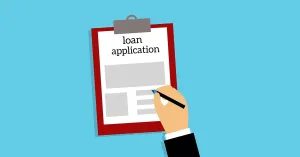Private lending is a great way to invest in a range of markets. Lawyers, doctors, landlords, and anyone with financial backing can become private lenders. Many individuals have taken advantage of this opportunity to help others achieve their business and lifestyle goals. Of course, the main benefit of private lending is the ability to make a passive profit from interest.
However, private lending isn’t as easy as setting up a loan service, handing out cash, and waiting for the repayments to roll in. As a private lender you need to do your due diligence to ensure potential clients are trustworthy, your money is safe, and your private lending is lawful. One of the biggest risks for private lenders is that their loans will be used for unsavory purposes, such as money laundering.
As a private lender, it’s important to educate yourself on money laundering laws so you can protect yourself and your business. The laws surrounding money laundering will affect the way you vet your clients, record loans, and train your employees. Not operating in keeping with these regulations can land you in deep trouble with the law. Not to worry though, as this post will give you a brief introduction to anti-money laundering laws, and how they relate to private lenders.
What is Money Laundering?
Money laundering is a process used by criminals to make money that they have gained illegitimately, through criminal activities, appear to be genuinely earned. This could be money gained from white-collar crime, such as blackmail, extortion, and insider trading. Or it could be money gained from criminal activities such as drug and arms dealing or trafficking, or illegal gambling to name just a few.
In essence, money launderers will disguise their illegal and unexplainable finances as legitimate income. This is so criminals can hide their illicit activities and ‘dirty’ money from law enforcement and financial bodies, and continue to operate their illegal organizations.
How are Private Loans Used to Launder Money?
Money laundering techniques often vary in complexity depending on the type of criminal you may be dealing with. At its most basic, dirty money is laundered through 3 distinct steps.
- Placement
This first step involves introducing dirty money into the financial system. The main aim of criminals at this stage is to avoid attracting any attention from financial reporting bodies. Taking advantage of loan or mortgage-repayment schemes to get illegitimate cash into circulation is a common technique at this first stage.
- Layering
Just because ill-gotten gains are now in circulation, does not mean criminals are safe from scrutiny. This second step, known as layering, involves layering legitimacy onto dirty money by moving it around so that it appears as always having been genuine. When it comes to private lenders, money being transferred from overseas directly into your account is a common layering technique.
- Integration
Laundered money is no good if the criminal doesn’t get it back. Integration refers to the criminal process of receiving the cleaned money in what appears to be a legitimate fashion. This is often done through regular purchases of high-value assets (property is the most popular) or investing in many areas of the financial market. These assets are then resold and the money received appears to be legitimately earned.
As a private lender, you may fall victim to money laundering at any stage of the process. However, the involvement of loans in money laundering activities is most common at the placement and integration stages. To combat this, all financial institutions are tasked with reporting suspicious financial activity as soon as it becomes apparent. Now you know a little more about how criminals use private lenders to launder money, let’s take a look at the specific money laundering laws used to combat it.
Anti-Money Laundering Laws in the US
The US was one of the first countries to criminalize money laundering in 1986. Currently, the 18 United States Code sections 1956 and 1957, as well as the Bank Secrecy Act and Anti-Money Laundering Act, lay out the modern regulations for financial and lending bodies concerning anti-money laundering efforts.
What Transactions Count as Money Laundering?
Any transaction or transmission of funds or financial instruments that have been gained illegally is a crime under section 1956. Any transaction of funds or instruments with the intent to conceal the source, ownership, or control of these assets is subject to prosecution under section 1956. Finally, while tax evasion in itself may not involve money laundering, conducting transactions with unlawful funds to file a false tax report is criminalized under section 1956.
When is Money Laundering a Crime for Private Lenders?
As a private lender, if you know that money has been gained through criminal activity and still choose to conduct transactions, you are also guilty of money laundering.
It does not matter if you are not directly involved with a criminal organization, or receive nothing in return for conducting these transactions.
“Knowledge” of money laundering activity means you have failed to do your due diligence when it comes to investigating your borrower and their funds. If you are charged with involvement in money laundering you must prove that you performed all necessary checks on your client and found nothing that could be deemed suspicious. This is why it’s so important to educate yourself on anti-money laundering practices as a private lender.
Are You Still Liable for Overseas Clients Who Launder Money?
Yes.
If you are responsible for a private loan service that conducts overseas lending, you can be charged and tried in the US for money laundering activities. This is true even if the original criminal activity that generated the funds, and subsequent criminal activities using the ‘cleaned’ money, take place outside of the US.
Overseas transactions are a common way for money launderers to make funds seem legitimate. This is why any transaction that takes place wholly or in part in the US, whether by a citizen of the US or not, is subject to scrutiny and prosecution under section 1957.
What is the Sentence for those Convicted of Money Laundering?
Money laundering prosecution is dealt with by the Money Laundering and Asset Recovery Section (MLARS) of the US Department of Justice. Your district attorney can also prosecute money laundering crimes with the permission and optional involvement of MLARS. Each of these bodies has investigative jurisdiction over money laundering activity.
As well as a sentence of 20 years for each count of money laundering, the maximum penalty is a $500,000 fine or double the value of the property involved in transactions (depending on which is the greater number). Any assets traceable to the money laundering activities will be forfeited. Since this is classed as civil forfeiture, any asset traceable to money laundering can be demanded of private lenders, even if you have not been convicted of money laundering.
Your Anti-Money Laundering Duties as a Private Lender
Although it was passed in 1970, the Bank Secrecy Act is still one of the most thorough tools in investigating and prosecuting money launderers. The Financial Crimes Enforcement Network (FinCEN) is the body charged with overseeing that financial institutions comply with the regulations laid out in this act and its amendments. Even as a private lender, you are required to follow these regulations.
- Creating an AML Program
All financial institutions must have an AML (anti-money laundering) program that sets out how they will identify and prevent money laundering in their service. This will include policies on how you record transactions, as well as internal checks and controls. Your AML program should detail how your loan service will comply with each BSA regulation, as well as how you will ensure and record this compliance.
- Appointing a Compliance Officer
Appointing a compliance officer will save you time and money when it comes to enforcing BSA regulations in your private lending. This individual will be responsible for the implementation and necessary revision of your business’s AML program. As well as this, they will manage employee AML training and make sure the correct people are up to date with regulations.
- Training Employees
For money launderers, colluding with an employee at your lending service can make the process much smoother. This means the risk of money laundering can appear both externally and within your loan service. To ensure that your employees are equipped to spot the warning signs of money laundering, all employees should receive comprehensive AML training with refresher courses once a year. This training must be documented.
- The CDD Rule
The Customer Due Diligence rule is a relatively new requirement, that amends the original regulation laid out in the Bank Secrecy Act. To comply with the CDD rule your private loans service will need to identify and verify the identity of all borrowers and any beneficiaries, create risk profiles for each borrower, and continually monitor your clients’ payments and transactions for red flags.
- Reporting Suspicious Activity
Under the Anti-Money Laundering Act of 2020, financial institutions are responsible for checking and reporting any individual or organization that may be related to criminal activity and money laundering. Per requirements laid out by FinCEN, suspicious activity should be recorded on a Suspicious Activity Report by MSB form. These are available at www.msb.gov, or you can call the IRS Forms Distribution Center at 1 800 829 3676. The finished report should be sent to the following address, and a copy should be stored by your compliance officer for 5 years:
Detroit Computing Center
Attn: SAR-MSB
P.O. Box 33117
Detroit, MI 48232-5980.
- Independent Review
Finally, private lenders are not exempt from regular testing by third-party organizations. Enlisting the help of an experienced AML consultant (who has no prior contact with your compliance officer) can help you identify any weaknesses or risks in your defense against, and prevention of, money laundering in your private loan service.
Where To Go Next…
Make sure your compliance officer is fully up to date with all regulations, but don’t just leave it up to them. If your private lending is placed under investigation, you won’t be able to point the finger at your compliance officer and be done with it. Familiarize yourself with the relevant laws below:
- 18 United States Code section 1956
- 18 United States Code section 1957
- Bank Secrecy Act
- Anti-Money Laundering Act
- Suspicious Activity and How to Report It - FinCEN
As well as doing your research, there are a variety of resources and individuals that it may be useful to establish contact. In particular, there are multiple services that specialize in drawing up AML programs for private lenders, as well as consultants who can help you keep risks to a minimum and sharpen up your current AML precautions. Finally, when you employ accountants and solicitors, the same risk assessment should be carried out, and you should ensure they are up to date with current anti-money laundering laws and how they relate to private lenders, as well as your business’s tailored AML program.
Sources
- https://www.napier.ai/knowledgehub/what-is-money-laundering#P2
- https://thebusinessprofessor.com/en_US/criminal-civil-law/loan-back-method-of-money-laundering-definition
- https://www.lawsociety.org.uk/topics/property/anti-money-laundering-in-property
- https://geracilawfirm.com/anti-money-laundering-laws-and-the-private-lending-industry/
- https://www.occ.treas.gov/topics/supervision-and-examination/bsa/index-bsa.html
- https://www.capitalcomplianceexperts.com/compliance-news/the-five-5-pillars-of-bsa-aml-ofac-compliance/
- https://www.fincen.gov/news/news-releases/fincen-issues-first-national-amlcft-priorities-and-accompanying-statements
- https://iclg.com/practice-areas/anti-money-laundering-laws-and-regulations/usa
- https://www.finra.org/rules-guidance/key-topics/aml
- https://www.lexisnexis.com/legalnewsroom/banking/b/banking-finance/posts/new-anti-money-laundering-requirements-for-non-bank-mortgage-lenders-and-originators





















One comment
Finacus Solutions
MoneyThumb’s blog emphasizes the importance for private lenders to possess knowledge of anti-money laundering laws. It’s a well-informed guide, offers essential insights to navigate compliance challenges in the financial landscape.